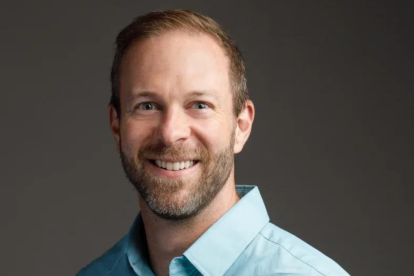The Value of 12-Step Programs and Other Peer Support Groups in Dual Diagnosis Treatment

When your loved one is struggling with a mental illness and co-occurring substance use disorder, dual diagnosis treatment is essential to ensuring your loved one receives the care they need to heal from both disorders simultaneously. However, dual diagnosis treatment should go beyond clinical care and invite participation in peer support programs to encourage the best outcomes. By connecting with a program that recognizes the value of peer support programs within an integrative spectrum of care, you can help your loved one find lasting recovery.
Karen was diagnosed with schizophrenia during her first year of college. She flitted in and out of hospitals, struggling to gain control over her symptoms. Soon, she began cycling through medications—and navigating myriad unwanted side effects. As her doctors continued to search for answers, she turned to marijuana to cope with her pervasive unease. Before long, she was smoking multiple times a day. Despite feeling deep shame when people pointed out her red eyes and the marijuana smell that clung to her clothes, she kept using.
For Karen, as for so many others, mental illness and substance use not exist alongside each other, but are deeply intertwined. Research suggests that “at least 20% of people with a mental illness have a co-occurring substance use problem” and that rate increases with the severity of the disorder. At least 40% of people of bipolar I are believed to struggle with a substance use disorder, for example, while for those with schizophrenia the number may exceed 50%. The medical community is now recognizing that healing from either disorder requires healing from both disorders using sophisticated dual diagnosis treatment approaches.
The value of peer support programs within such treatment should not be underestimated. Peer support can be a critical component of the recovery process and help your loved one establish both sobriety and greater overall well-being.
The Importance of Dual Diagnosis Treatment
The high rate of substance use disorders amongst people with mental illness can be attributed to a wide variety of causes, including shared environmental and biological underpinnings and increased motivation to alter one’s mental state. However, while people with mental illness are more likely to abuse harmful substances, they are also more likely to be harmed by them; drugs and alcohol can augment symptoms of mental health disorders while simultaneously diminishing treatment efficacy.
Substance abuse can also complicate mental health diagnosis and follow-up monitoring due to difficulties differentiating between symptoms of mental illness and the effects of drug and alcohol use, making your loved one vulnerable to inaccurate diagnosis and incorrect or incomplete treatment. Meanwhile, the unresolved symptoms of mental illness can strengthen the impetus for substance abuse, increasing the severity of substance use disorders.
Due to the complex relationship between mental illness and substance use disorders, treating one in isolation from the other is unlikely to produce lasting recovery from either disorder. Dual diagnosis treatment programs offer expert assessments by clinicians who can properly diagnose and treat your loved one even in the presence of co-occurring disorders. Their treatment will most likely include a variety of empirically-based modalities, including pharmacotherapy, cognitive behavioral therapy, mindfulness-based therapies, coping skills development, and relapse prevention.
Through these modalities, your loved one can explore the roots of their disorders and the relationship between them while developing meaningful strategies for emotional and behavioral change. Throughout treatment, your loved one will be monitored by expert clinicians who understand the special challenges faced by those with co-occurring disorders and who can continuously modulate their care to meet their needs in the moment.
Begin Your Recovery Journey Today.
619-466-0547The Value of 12-Step Groups and Other Peer Support Programs
While dual diagnosis treatment relies heavily on the expertise of clinicians who can deploy cutting-edge interventions, peer support programs often play a central role in healing for those struggling with mental illness and a co-occurring mental health disorder. The most well-known of these programs are, of course, 12-step programs such as Alcoholics Anonymous and Narcotics Anonymous. However, there are also newer formats, like SMART Recovery, that offer a different structure and philosophy than traditional 12-step groups. The wide variety of groups available today gives your loved one the freedom to connect with a program that speaks to them based on their own needs and beliefs.
While the details of peer support programs may differ, all are built on the basic premise of people in substance use disorder recovery giving and receiving support while sharing their struggles and wisdom in a safe, non-clinical environment. Your loved one will be drawn out of isolation and invited to join a community of people who understand what they are going through. Here, your loved one can explore their experiences and follow a shared path of recovery while staying accountable to and learning from others who are on the same journey. As one research cohort writes in Social Work in Public Health:
[These groups] encourage bonding with other members, providing structure and a sense of goal directedness; the provision of behavioral norms about and role models for how to work toward abstinence; the development and engagement in non-substance-related activities that are rewarding and can take the place of substance-related activities; and the development of more effective coping skills with an associated increase in self-efficacy.
Seeing that recovery is possible, seeing how it is made possible, and being supported by peers to create a clear path to recovery in one’s own life can be an extraordinarily powerful experience.
The value of peer support programs has been proven in numerous studies over the years. Participation in peer support programs during formal treatment is “associated with better outcomes” and higher levels of participation correspond to lower relapse rates. However, peer support groups don’t only impact substance use itself; they can also improve treatment outcomes for the primary mental health disorder. For example, according to the Social Work in Public Health study, peer support group attendance by people with schizophrenia is associated with “better medication compliance, as well as reductions in substance use and psychiatric symptoms and improved quality of life and self-efficacy.” This is particularly true for those attending peer support groups specifically geared toward people who have dual diagnoses, as participants may feel more comfortable disclosing psychiatric struggles.
Finding an Integrative Spectrum of Care
People struggling with severe mental health disorders are more vulnerable to developing substance use disorders than anyone else. When seeking residential dual diagnosis treatment for your loved one, choosing a long-term program that recognizes the value of 12-step groups and peer support programs can be an important step toward their recovery. These programs can offer the highest quality clinical care designed specifically for the needs of people with co-occurring disorders while providing plentiful opportunities for peer support group involvement. Through comprehensive treatment, your loved one can benefit from multiple recovery methods that work together to promote the best possible outcomes, both mentally and physically. This approach can help your loved one and your entire family find healing and create a healthier, more joyful future.
For Karen, dual diagnosis treatment combined with peer support was a transformative experience. It wasn’t easy, especially at first; as Karen says, “Healing can be hard work. It takes time and patience and most of all, self-compassion.” But recovery is worth it—it has allowed her to rediscover herself and given her a way forward as she seeks to fulfill her potential.
BrightQuest offers long-term residential treatment for people struggling with mental health disorders and co-occurring substance use disorders. Contact us to learn more about our renowned program and how we can help you or your loved one start the journey toward healing.






